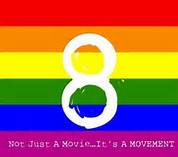This article ran in the Economist
ON AUGUST 15th Donald Trump repeated his belief that “both sides” were to blame for the violence on August 12th at a white-supremacist rally in Charlottesville, Virginia that left one woman dead. David Duke, a former leader of the Ku Klux Klan, thanked him for “condemning] the leftist terrorists in BLM,” referring to the Black Lives Matter movement. David Clarke, the sheriff of Milwaukee County and a supporter of Mr Trump, has also called Black Lives Matter “purveyors of hate”, and urged the Southern Poverty Law Centre (SPLC), to include it among the hate groups it monitors. Many on the right share this belief. It is mistaken.
ON AUGUST 15th Donald Trump repeated his belief that “both sides” were to blame for the violence on August 12th at a white-supremacist rally in Charlottesville, Virginia that left one woman dead. David Duke, a former leader of the Ku Klux Klan, thanked him for “condemning] the leftist terrorists in BLM,” referring to the Black Lives Matter movement. David Clarke, the sheriff of Milwaukee County and a supporter of Mr Trump, has also called Black Lives Matter “purveyors of hate”, and urged the Southern Poverty Law Centre (SPLC), to include it among the hate groups it monitors. Many on the right share this belief. It is mistaken.
To be sure, some protestors who claim affiliation with BLM have said hateful things. A group outside the Minnesota State Fair chanted, “Pigs in a blanket; fry ‘em like bacon”. The previous night a sheriff’s deputy had been shot in Houston, for which some BLM opponents blame the movement—without evidence. Some have blamed BLM for the fatal car crash in Charlottesville last weekend, saying it happened because BLM supporters were throwing bricks at the car. The movement may have begun with honourable intentions, one argument runs, but it has been “hijacked by a group that hates white people and looks to burn down cities and towns”. And some seem to object to the name, hearing in the phrase “Black lives matter” the implication that other lives do not.
That argument is easily dismissed. Affirming one thing does not negate all else. Donating money to support, say, cancer research does not make one a cheerleader for tuberculosis. Someone who says that black lives matter does not imply that other lives do not—they are simply reminding people that for most of American history black lives have been valued less than white ones. The days of slavery and de jure segregation have mercifully passed, but black Americans remain poorer, less healthy and more likely to be killed by police than whites. You can agree or disagree with BLM’s platform, but nothing in it promotes hatred of any race or group.
Richard Cohen, who heads the SPLC, defines hate groups as “those that vilify entire groups of people based on immutable characteristics such as race or ethnicity”. BLM does not fit the bill: it welcomes white supporters, has condemned violence and addresses structural racial inequities. Jacob Levy, a political philosopher, argues that BLM is “one of the most significant political mobilisations in defence of freedom” in decades. Its supporters oppose police brutality, mass incarceration, America’s drug war, police militarisation and civil-forfeiture abuses. All of those are causes that liberals, libertarians and conservatives—anyone who fears unchecked state power—ought to cheer. For more on BLM: https://www.economist.com/blogs/economist-explains/2017/08/economist-explains-15?fsrc=scn/gg/te/bl/ed/.

























































